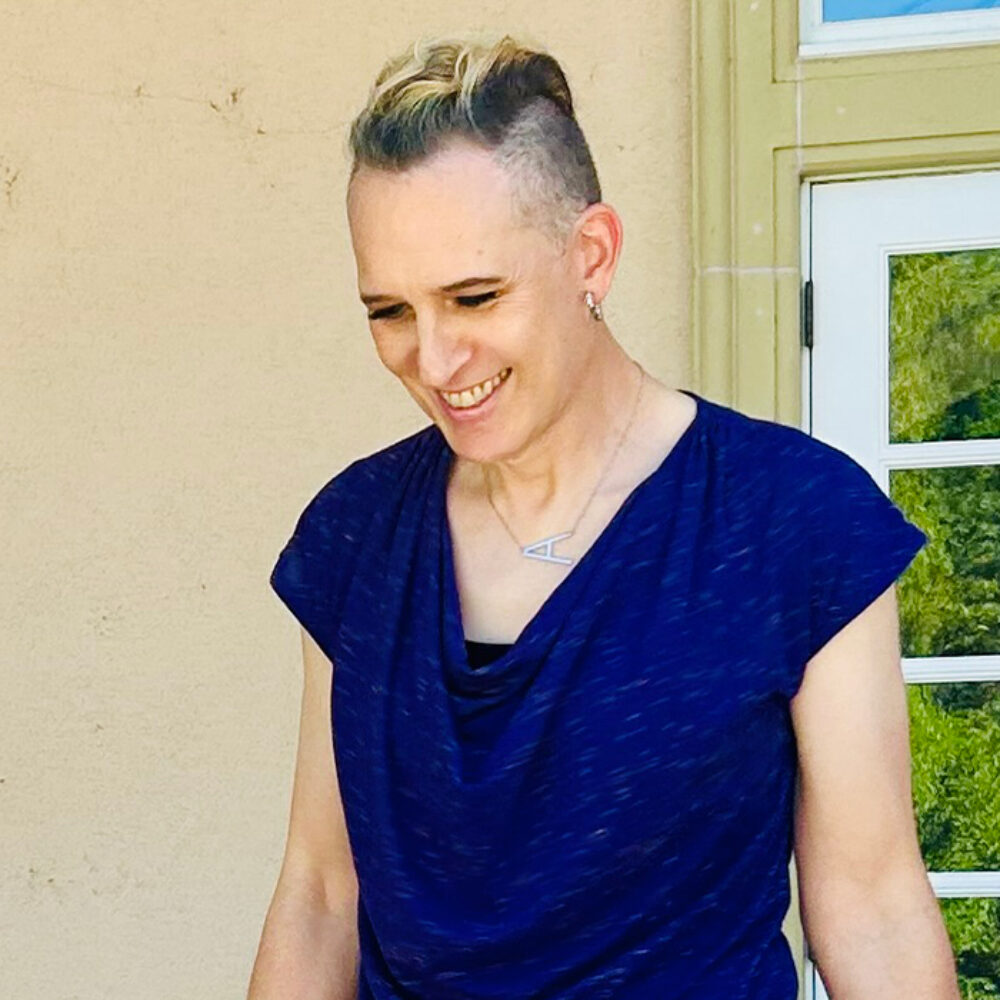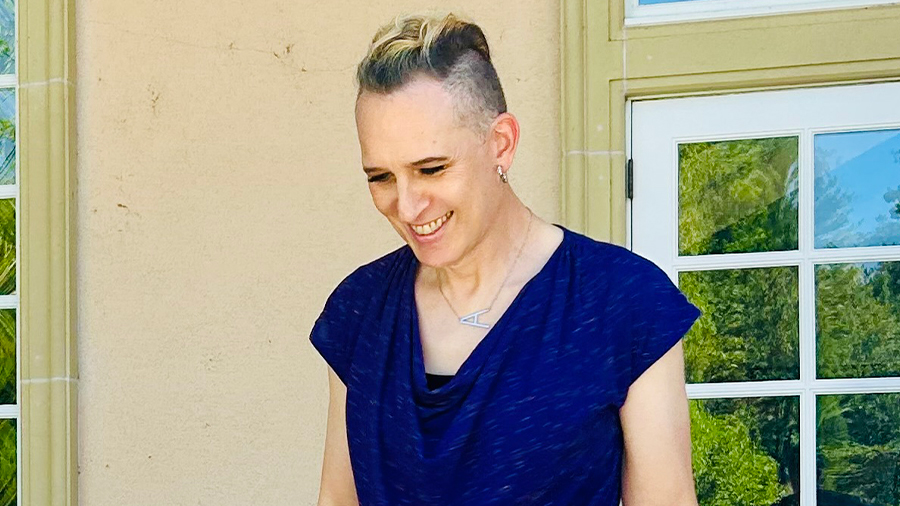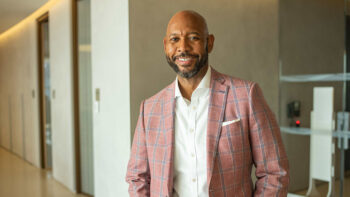‘Coming to work as myself’
Alex Tricarico, senior writer for wello (Wells Fargo's Creative Agency) talks about coming out as transgender at Wells Fargo — and how work became their unlikely sanctuary.
It’s June as I write this, and this time of year is always a reminder of the dual life I was once forced to lead. That memory — difficult for so long — has softened these last few years. The corners aren’t quite as sharp, the cuts they trace not quite as deep.
I came out as transgender during the pandemic, as did many, because the pressure of having to show up the next day in the office as a different (and substantially more insecure) person had been temporarily lifted.
May was Military Appreciation Month and June is Pride month; two very different worlds, and I had a foot in each — one acknowledged, one secret. It was an uncomfortable fence to straddle.
Like many in our community, I grew up confused. But unlike some, I was adept at ‘passing.’ I wasn’t overtly feminine. I was the captain of my high school’s varsity soccer team, often in the newspaper. And while this kept me safe from bullying, it only exacerbated my turmoil. How could I be a girl, I wondered with ever escalating distress, if I was so good at being a boy?
I attended college on a Navy scholarship. I was determined to fly F-14s, to “do some of that pilot sh!t” in Goose’s immortal words from Top Gun. There is a disproportionately higher percentage of transgender folks (I speak of male to female in this case) in hyper-masculine occupations like the military, the theory being that perhaps we’re all mainlining macho-ness in an attempt to banish the feminine from ourselves. I would come to find that it wouldn’t work, if that had indeed been my aim. Alas, I’ll never know. My subconscious has never been terribly forthcoming.
Years later, as return to office loomed after I had come out — and despite the avalanche of love and support I had received from my colleagues at Wells Fargo — so loomed my anxiety. So much so that I left Wells Fargo for a 100% remote job. I no longer needed to commute. Or interact. Or be exposed. I was safe. And I was sad.
After seven months, I came back. I was scared. But I was even more scared of having to acknowledge that I had finally, after years of struggle, two marriages and as many divorces, come out, only to turn … and run. And a funny thing happened on the way (back) to Wells Fargo. Work — often the most frightening of all places for people in, or in my case, just out, of the closet — became my sanctuary.
“For the first time I’m being seen for who I am, and perhaps more importantly, being asked for a perspective no one even knew I had.”
As of this writing, I am experiencing something I never dreamed possible; coming to work as myself. For the first time I’m being seen for who I am, and perhaps more importantly, being asked for a perspective no one even knew I had. And it’s thanks to the company I work for, and the people I work with.
Can Wells Fargo do more? Of course we can. Everyone, everywhere can always do more.
But it isn’t always about how much. Sometimes, it’s simply about, how. How we treat one another. How we respect and support one another. How we say through everything we do, you belong.
We live these values day in and day out at Wells Fargo. And we’re doing it at a time when DE&I is becoming a four-letter word to some in corporate America. As other companies scale back their support, Wells Fargo is doubling down on its DE&I efforts, knowing that inclusion of historically marginalized communities isn’t only morally right, but that building a workforce actually representative of the customers we serve is also financially smart.
Is Wells Fargo perfect? Nope. But I’d much rather work for a company striving to get there than one that won’t even try.








